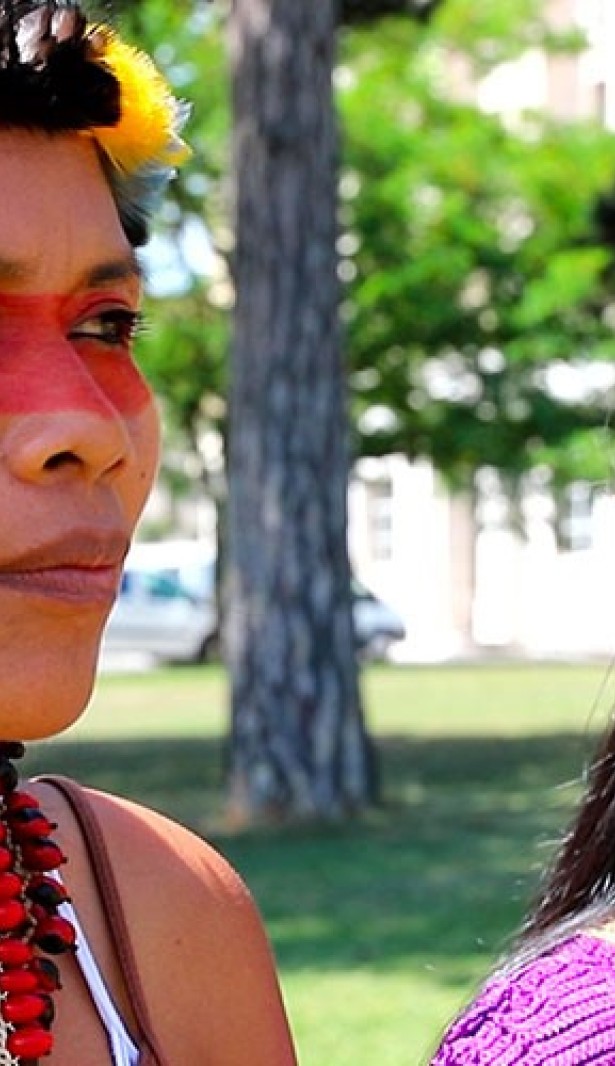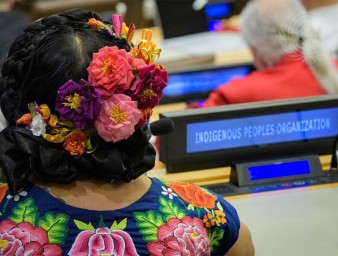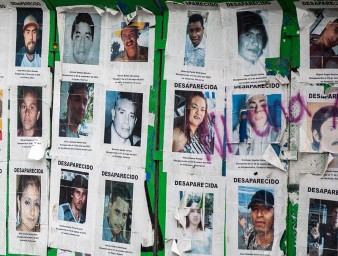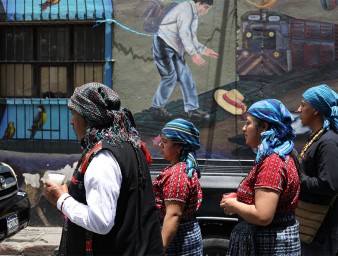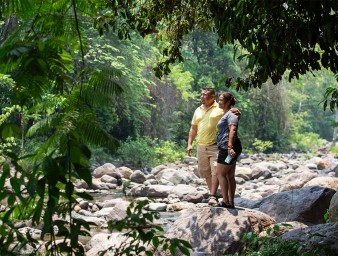Courts rather than spears used to defend indigenous territories
06 September 2019
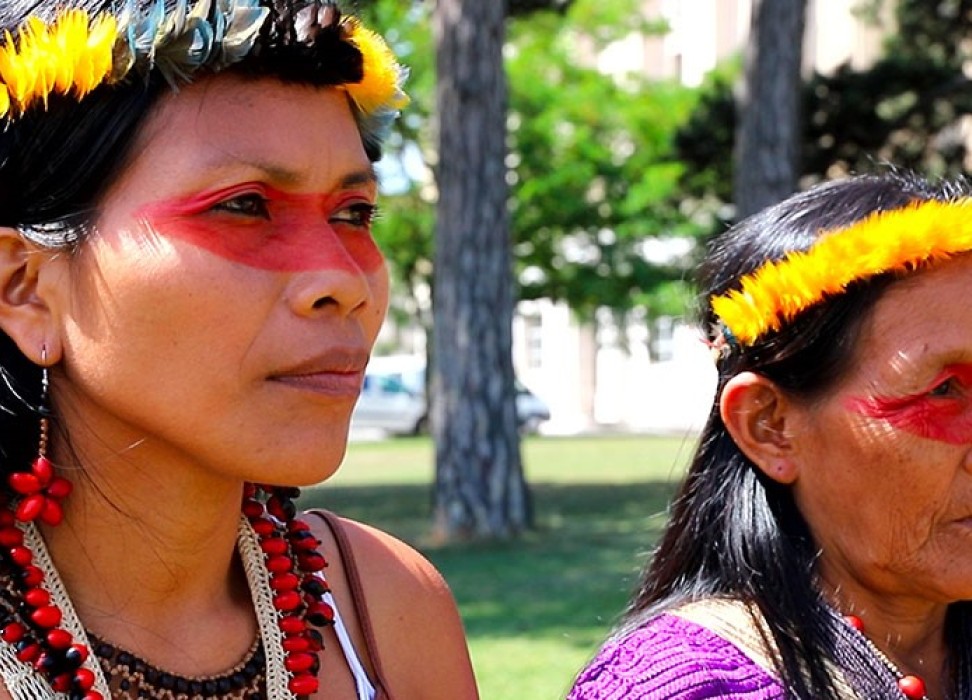
“Justice is very important because today it is not enough to defend ourselves with spears or rituals. Now we have to go to court to protect ourselves and work with lawyers and community law,” said Nemonte Nenquino of the Waorani people in Ecuador.
Nenquino is the president of the Waorani Pastaza Organization (CONCOAWEP), an organization that represents the Waorani people of Ecuador across the Pastaza region. Nenquino, along with Waorani elder Omanca, were in Geneva recently to attend the Expert Mechanism on the Rights of Indigenous Peoples (EMRIP). The meeting brought together indigenous people, NGOs and other experts to discuss challenges facing the communities.
Nenquino and Omanca were also there to talk about the Waorani’s recent court victory. In April, a court in Ecuador ruled that that the Government had not properly consulted the Waorani of Pastaza, in eastern Ecuador, about an oil auction that would affect their territory. Over the years, Ecuador has divided much of its portion of the Amazon forests into blocks to lease mineral rights in international auctions.
In 2018, Ecuador’s Minister of Hydrocarbons announced an auction of 16 new oil concessions covering roadless, primary forest in the several regions, including the Waorani. However, in a suit filed with in February, the Waorani claimed the government had not properly consulted the community about the oil auction. The court agreed.
Nenquino said the court ruling wasn’t just a victory for the Waorani, “but for other indigenous people in Ecuador. We have brought a message from the jungle, message of what we feel.”
Human rights defenders, particularly those who defend environmental rights, are in the crosshairs of increasing violence. This year started with the death of six human rights activists in the first week of the new year and in March one of the leaders of a Brazilian environmental group was also murdered.
The Human Rights Council has recognized the increasing threats to environmental defenders. In its last session that ended on 22 March, the Council passed a resolution expressing “grave concern at the situation of environmental human rights defenders around the world and strongly condemns the killing of and all other human rights violations or abuses against environmental human rights defenders.” The Resolution urges States to take concrete steps to protect and defend these activists, including pursuing accountability for all attacks and threats made.
Omanca, from the Waorani, said as an indigenous woman from the jungle, the land is her life and fighting for it is what she must do.
“I consider that I am defending the rights of nature and I am not afraid to face threats,” she said. “That is why I am here (in Geneva), to explain what is happening in my territory, in the jungle so that the place I live can be respected.”
The Waorani Pastaza Organization is part of a coalition of indigenous rights groups called the Waorani Resistance, which advocates for the sovereignty and land rights issues. For the lawsuit against the Ecuadorian government, the group spent years mapping the area and holding campaigns against encroachment. The 7-million acre region is home to some of the highest levels of biodiversity on the planet. They also gathered testimonies from dozens of elders and community leaders to show the lack of consultation by the government.
Nenquino said the court victory is a chance to send a message of hope to the rest of the world but in particular other indigenous environmental rights defenders.
“We have to unite,” she said. “The struggle is not only for the indigenous, but for all humanity. We have to sustain our planet. We’re wiping out nature and we’re helping humanity to disappear. We have to unite to save the world.”
Learn more of the Waorani and their call to protect their land and culture in this video.
6 September 2019
